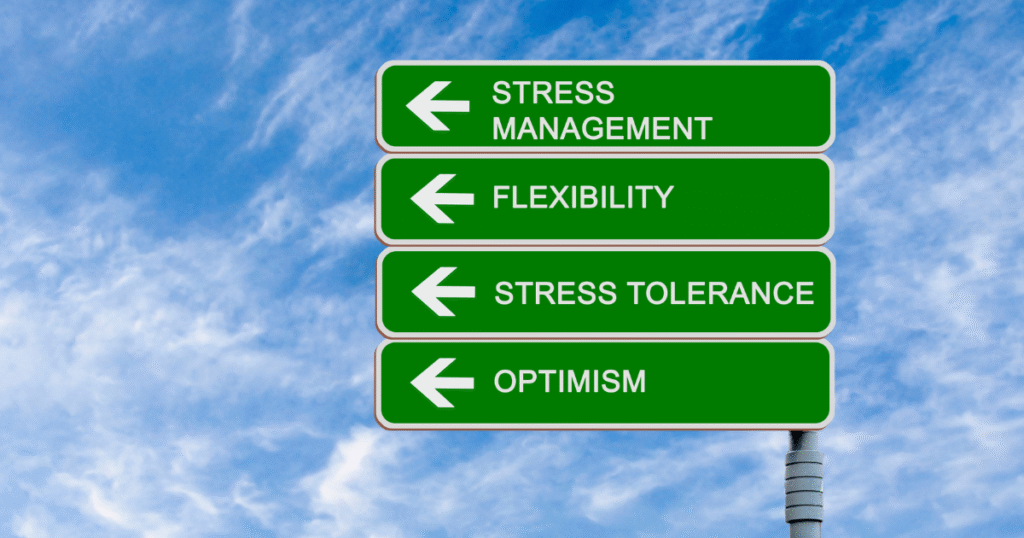With the decision to overcome addiction comes the often challenging experience of withdrawal. Understanding what to expect during this process is important for your journey towards recovery.
You can learn about the physical and psychological symptoms associated with withdrawal at our alcohol addiction treatment page. It’s important to know that support is available, and exploring options for professional help can greatly ease your experience, so check out our drug addiction treatment services. As you navigate this path, feel empowered to reach out for guidance and support.
Key Takeaways:
- Withdrawal symptoms can vary significantly depending on the substance involved. Understanding the specific symptoms related to alcohol and drug addiction can help you prepare for the process. For more information, check our [Alcohol Addiction Treatment](https://transformationscare.com/alcohol-addiction-treatment/) and [Drug Addiction Treatment](https://transformationscare.com/drug-addiction-treatment/) pages.
- Safe management of withdrawal often requires professional support. Engaging with healthcare professionals can ensure a safe detox environment, addressing both physical and emotional symptoms effectively.
- Developing a comprehensive aftercare plan is vital for maintaining sobriety post-withdrawal. This may include therapy, support groups, and continued medical support; explore various treatment options available through Transformations Care to aid in long-term recovery.
Understanding Withdrawal Symptoms
To effectively manage withdrawal, it’s vital to understand the symptoms you may experience. Withdrawal symptoms can vary significantly based on the substance you are discontinuing and your individual health circumstances. It’s important to be aware of these symptoms as they can affect both your body and mind. Seeking professional support during this challenging time can help mitigate these effects and ensure a smoother transition. If you are looking for support, consider exploring options for alcohol addiction treatment or drug addiction treatment.
Physical Symptoms
One common aspect of withdrawal is experiencing physical symptoms, which can range from mild discomfort to severe pain. You might encounter headaches, nausea, sweating, shaking, or muscle aches. These symptoms can be uncomfortable, but understanding that they are temporary can be reassuring. Having a support system in place can also help you cope with these physical changes effectively.
Psychological Symptoms
Below are psychological symptoms that often accompany withdrawal, including anxiety, depression, irritability, and intense cravings. You might feel a sense of hopelessness or heightened emotional sensitivity, making it vital to be prepared for these mental challenges during your recovery.
Even mild psychological symptoms can affect your day-to-day functioning and overall well-being. It is vital to acknowledge these feelings rather than suppress them. Connecting with a therapist or a support group can provide valuable coping strategies and help you process your emotions. Engage with resources that specialize in mental health support during withdrawal, such as those found on Transformations Care, to ensure you have the guidance you need throughout your recovery journey.
The Timeline of Withdrawal
If you are commenceing on the journey to recovery, understanding the timeline of withdrawal can help you prepare mentally and emotionally. Withdrawal symptoms can vary based on the substance, duration of use, and your individual health factors. Generally, you can expect a sequence of phases that will give you insight into what to anticipate as your body adjusts to the absence of the drug.
Initial Phase
To start, the initial phase of withdrawal begins within hours of your last substance use. During this time, you may experience mild symptoms such as anxiety, cravings, or irritability, which can intensify as your body starts to react to the absence of the substance. Being informed about this initial phase can assist you in developing effective coping strategies.
Peak Symptoms
Timeline-wise, peak symptoms typically occur 1-3 days after you stop using. This is when withdrawal symptoms are often at their most severe, including body aches, sweating, nausea, and mood swings. Understanding that this phase may be exceptionally challenging helps you prepare for seeking professional support.
Hence, you should be aware that peak symptoms can vary significantly depending on the substance of abuse. For individuals withdrawing from alcohol or benzodiazepines, the risks are amplified, including the potential for seizures. Engaging in a structured treatment program, like those at Transformations Care, can provide you with vital support and resources to navigate this critical period effectively. Taking advantage of professional help tailored to your needs can significantly ease the burden of withdrawal symptoms, guiding you toward lasting recovery.

Coping Strategies During Withdrawal
Your journey through withdrawal can be challenging, but with effective coping strategies, you can navigate this process more smoothly. Focus on building a support network, engage in healthy activities, and stay informed about the withdrawal stages, all of which can significantly ease your experience. A combination of medical support and self-care techniques allows you to remain grounded and resilient throughout the process.
Medical Support
An imperative component of managing withdrawal is seeking appropriate medical support. Professional interventions, such as medication-assisted treatment, can alleviate withdrawal symptoms and provide you with much-needed relief. Connecting with healthcare professionals who specialize in alcohol addiction treatment or drug addiction treatment can ensure that you are monitored and cared for as you navigate this challenging period.
Self-Care Techniques
On your path to recovery, self-care techniques can empower you to enhance your well-being and promote a smoother transition through withdrawal. Focus on developing routines that prioritize physical health, like maintaining a nutritious diet and engaging in regular exercise, which can improve mood and energy levels. Additionally, practicing mindfulness techniques and establishing restful sleep patterns may further support your recovery journey. For practical suggestions, explore resources on mental health treatment that can guide you in implementing effective self-care practices.
Another effective self-care technique is to incorporate stress management practices into your daily routine. Techniques such as meditative breathing, journaling, or engaging in hobbies can foster a sense of calm and provide an outlet for emotional expression. Surrounding yourself with supportive friends or attending support groups can also help you maintain motivation and accountability. Prioritizing your emotional and mental health during this time is vital, paving the way for lasting recovery. For more information on coping strategies, visit our article on resources for recovery.
The Role of Support Systems
Many individuals navigating withdrawal often find themselves in need of strong support systems to aid in their recovery journey. Connecting with a community can help you feel understood and less isolated. Consider exploring information on Home-based withdrawal as a potential option for your situation. It’s crucial to lean on the positive influences around you, as they can significantly impact your path to healing.
Friends and Family
By involving your friends and family in your recovery, you create an encouraging environment that can help you face challenges. Surrounding yourself with supportive loved ones who understand your situation can offer you comfort and boost your motivation to stay on track.
Professional Help
With professional assistance, you gain access to expert guidance tailored to your specific needs. Medical professionals and addiction specialists can provide you with strategies to manage withdrawal symptoms and address the root causes of your addiction.
At Transformations Care, we offer comprehensive support services, including tailored treatment plans and aftercare programs. Engaging with trained professionals allows for individualized attention that can make a significant difference in your recovery journey. Explore our specialized treatments for both alcohol and drug addiction by visiting our pages on alcohol addiction treatment or drug addiction treatment, ensuring a holistic approach to your healing process.
Long-Term Management of Withdrawal Effects

All individuals recovering from addiction will experience varying withdrawal effects that require ongoing management. Adapting to these changes and managing symptoms long-term can significantly enhance your recovery journey. Developing strategies to cope with withdrawal effects not only aids in maintaining sobriety but also builds resilience against future challenges. It’s vital to stay informed and seek support, as maintaining focus on your well-being is key to achieving lasting change.
Relapse Prevention
Prevention is the cornerstone of maintaining your recovery from addiction. Establishing a comprehensive relapse prevention plan is vital to identify triggers and develop coping strategies. You should actively engage in self-care practices, attend support groups, and be mindful of high-risk situations.
By creating a proactive approach, you empower yourself to manage temptations and bolster your commitment to a sober lifestyle. Don’t hesitate to seek professional guidance, as an individualized plan can significantly enhance your success.
Ongoing Support
For sustained recovery, ongoing support is vital in managing withdrawal effects. Surrounding yourself with a network of support can alleviate feelings of isolation and provide the necessary encouragement. Engaging in therapy or participating in group counseling sessions can offer you a safe space to share your experiences and challenges. Supportive relationships are crucial to navigating the complexities of recovery, and you can find strength in knowing that others share similar journeys.
Further, accessing ongoing support through resources such as counseling can enhance your coping strategies and equip you with tools to handle withdrawal effects effectively. Programs like those offered at Transformations Care can provide tailored strategies to cater to your individual needs.
Communicating with a community of peers can make a significant difference in your journey, as shared experiences may inspire you to keep moving forward. Explore the available resources at Transformations Care to find further support options that fit your specific recovery path.
Seeking Professional Help
Once again, acknowledging the importance of professional help during withdrawal is vital. Engaging with healthcare specialists can provide the necessary support and guidance. They can assist you in navigating the complexities of withdrawal symptoms and develop a personalized treatment plan tailored to your needs.
When to Reach Out
Along your journey, it’s vital to recognize the signs that indicate you should seek professional help. If you experience severe withdrawal symptoms, feel overwhelmed, or notice your mental health deteriorating, it’s time to reach out to a professional. Ignoring these signals can lead to further complications.
Types of Treatment Options
About understanding your treatment options is imperative for effective withdrawal management. There are several approaches that can be tailored to fit your situation:
|
|
|
|
|
|
Knowing each option prepares you to make informed decisions about your recovery journey. For more detailed information, you can explore the services offered at Transformations Care.
Hence, exploring various treatment options will empower you during this challenging time. Understanding what each entails can help you choose the best path forward:
|
|
|
|
|
|
Knowing your options grants you control over your recovery. For further assistance, visiting Transformations Care can provide necessary resources tailored to your needs.
To wrap up
Upon reflecting, managing withdrawal can be a challenging process, but understanding what to expect can ease your journey. It’s imperative to prepare yourself for both the physical and emotional symptoms that may arise, while also acknowledging the importance of professional support. Familiarizing yourself with resources, like Opiate and Opioid Withdrawal, can provide invaluable guidance. For those facing addiction challenges, consider exploring our comprehensive treatment options for alcohol and drug addiction. Your path to recovery is achievable with the right tools and support.
FAQ
Q: What is withdrawal and why does it happen?
A: Withdrawal refers to the physical and psychological symptoms that occur when a person who is dependent on a substance stops or reduces their consumption of it. This happens because the body has adapted to the presence of the substance, and when it is suddenly removed, the body reacts negatively. Each substance, whether it’s alcohol or drugs, can cause a unique set of withdrawal symptoms, which can vary in severity and duration. For more information about withdrawal specifically related to alcohol, check out our Alcohol Addiction Treatment page.
Q: What withdrawal symptoms can I expect?
A: Withdrawal symptoms can vary significantly based on the substance being discontinued. Common symptoms may include anxiety, irritability, fatigue, nausea, and muscle aches. For alcohol withdrawal, symptoms can escalate to delirium tremens, a potentially life-threatening condition marked by confusion and seizures. It’s important to seek professional help to manage these symptoms effectively. Explore more about managing withdrawal symptoms in our Drug Addiction Treatment section.
Q: How can I manage withdrawal symptoms effectively?
A: Managing withdrawal symptoms can be challenging but is important for a successful recovery. Professional treatment programs provide medically supervised detoxification services that help ease the discomfort of withdrawal. These programs may include medication to alleviate symptoms and support from healthcare professionals. For comprehensive support during withdrawal, consider visiting our Alcohol Addiction Treatment and Drug Addiction Treatment pages.
Q: How long does withdrawal last?
A: The duration of withdrawal can differ widely among individuals and is influenced by factors such as the type of substance, the level of dependency, and overall health. Generally, withdrawal symptoms can commence within hours to days after cessation and may last from a few days to several weeks. Professional treatment can provide a clearer timeline specific to each individual’s situation. For detailed information on long-term substance use, visit our Alcohol Addiction Treatment resources.
Q: When should I seek help for withdrawal?
A: It is advisable to seek professional help if you experience withdrawal symptoms, especially if they are severe or persist over time. Early intervention can prevent complications and provide a support system during this challenging process. If you or a loved one is struggling with substance dependency, explore our services for Alcohol Addiction Treatment and Drug Addiction Treatment. Our trained staff can guide you through each step of managing withdrawal.




















